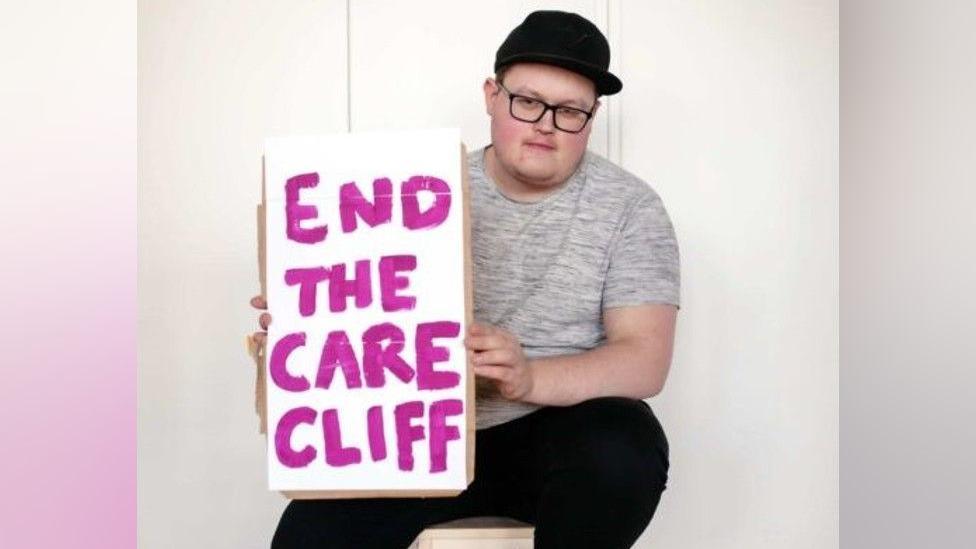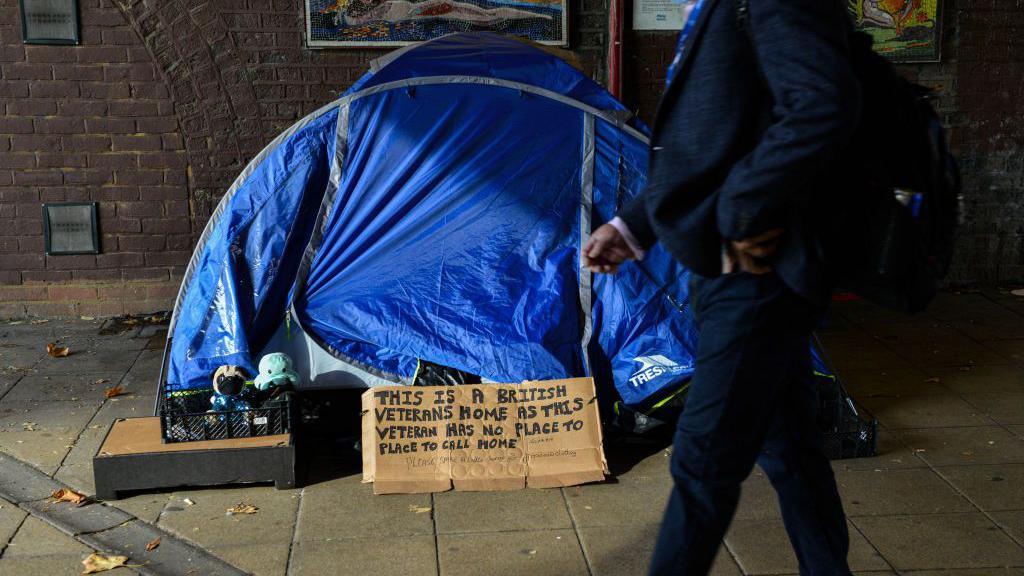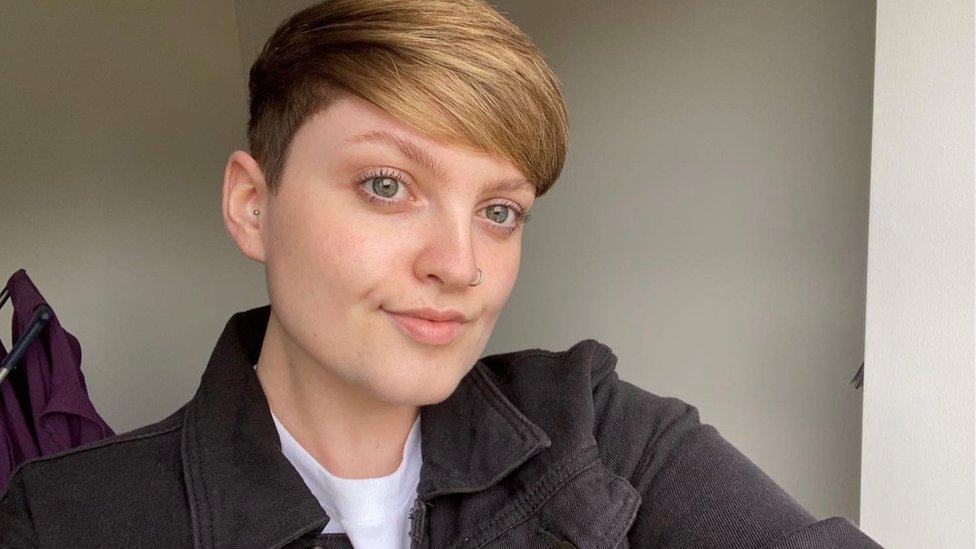'The care cliff and how I fell off it aged 18'

Oscar turned to sofa-surfing after struggling to find somewhere to live
- Published
Oscar was 18 and autistic when he began to fall from a place where there was once surer footing.
The care system supports thousands of children, including where they live, but in Oscar's experience, that shifted once he reached adult age.
For Oscar, there was not only a sense the system had changed in how it treated him, the switch seemed to happen overnight.
This, according to the Become charity, is the care cliff - a precarious ledge on which care leavers are forced in a flash to become independent.
'Death row'
"Too many young people are expected to leave care before they feel ready, falling at a time in their life when they need stability the most," said Katharine Sacks-Jones, CEO of the charity which helps young care leavers like Oscar.
"[Those we help] have described that time as a 'cliff edge' or like 'being on death row, counting down the days' until their 18th birthday when their placements are abruptly stopped."
When Oscar "fell", it was finding somewhere to live that proved particularly difficult, according to the charity.
It said that after struggling in supported living accommodation, Oscar was then unable to secure social housing due to a lack of access support.
As a result, he turned to sofa-surfing.
Oscar, from Solihull, is now 26 and in a housing association flat that he said took close to two years to find.
With the experience behind him, he is a face of Become's campaign, End the Care Cliff.
He said the cliff had been "very difficult" to experience.
"It’s anxiety, it’s worry, and its kind of like looking over your shoulder thinking 'am I ever going to find somewhere to live'? he said.
"Anyone who’s looking for a new place to live, especially coming out of care, you turn 18 and you’re pretty much thrown out into public housing."
Become said that in the West Midlands, 550 care leavers aged 18 to 20 were assessed as being homeless or facing homelessness in 2023/24.
Minister for Homelessness, Rushanara Ali, said the government was taking action to tackle the root causes of homelessness.
"We are reversing the worst housing crisis in living history by building 1.5m new homes and are changing the law to abolish Section 21 ‘no fault’ evictions – immediately tackling one of the leading causes of homelessness," she said.
She added that a cross-government group had been established to create a long-term strategy to end homelessness.
'The system's not a help it's a hindrance'
In September, the prime minister promised that military veterans, young care leavers and victims of domestic abuse would be exempt from local connection tests, which most councils use to decide who can qualify for social housing.
The charity described that as a "good start" but also called on the government to prioritise social housing for young people leaving care, and provide them with more support.
Oscar said: "The system isn’t there to support you, it's more of a hindrance.
"I think its very much a mess at this point in time which needs to be addressed, to help people find housing without having that worry and anxiety behind it."
He added of the government: "I feel like they need to connect with other people, not just having papers in front of them, reading through documents, ticking a box and saying 'that’s it'."
Get in touch
Tell us which stories we should cover in Birmingham and the Black Country
Follow BBC Birmingham on BBC Sounds, Facebook, external, X, external and Instagram, external.
Related topics
- Published24 September 2024

- Published25 August 2024

- Published18 October 2023
